Exploring Interests, Career Goals, Courses, and Opportunities
A primary goal of RadGrad is to provide a faculty-curated and student-augmented knowledge base about the discipline.
For new college students, the RadGrad knowledge base is intended to help them learn about the breadth of possibilities in the discipline, and new, emerging areas of innovation. This is important because, for example, many college students begin their degree experience with a very narrow view of computer science as being only for "nerds", or only useful if you want to design video games for a living.
For more senior students who have decided to pursue the discipline, the RadGrad knowledge base is intended to help them become more "well rounded" by helping them integrate extracurricular activities as an integral part of their degree program.
The "Explore..." drop-down menu provides access to "Explorers" for Interests, Career Goals, Courses, and Opportunities. (An additional Explorer for internships is currently in development but ready for use yet.)
Exploring Interests
Clicking on "Explore...", followed by "Interests", takes you to the Explorer for Interests, which will look similar to this:
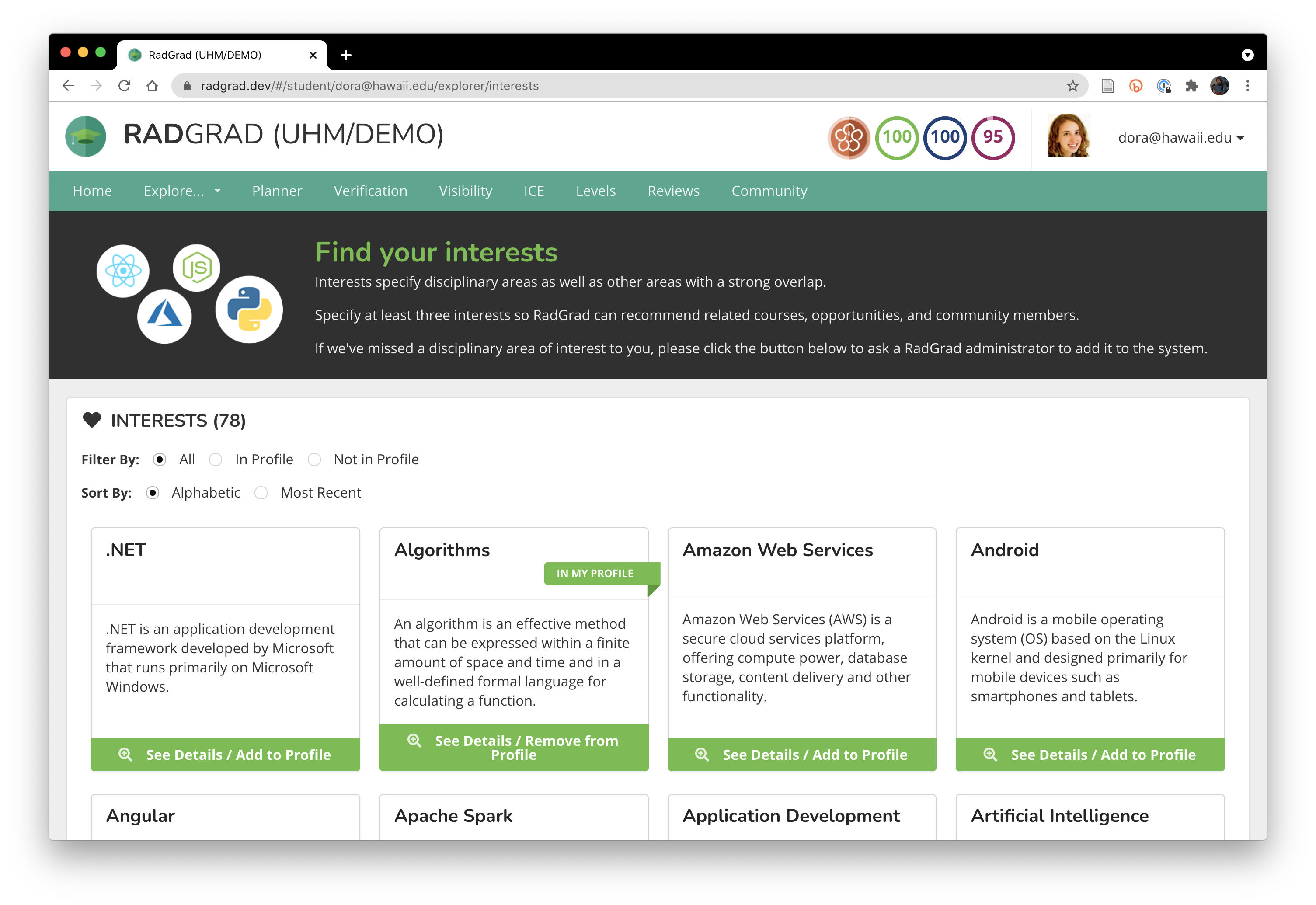
This page provides an overview of the 70+ "Interests", or discipline-specific topic areas, for this computer science-oriented instance of RadGrad.
It is important for students to have at least a few Interests added to their profile so that the system can make recommendations and support the development of communities of practice.
As you can see, "Algorithms" is an interest area for Dora. Let's click on the "See Details/Remove from Profile" button to take a look at its "Details" page:
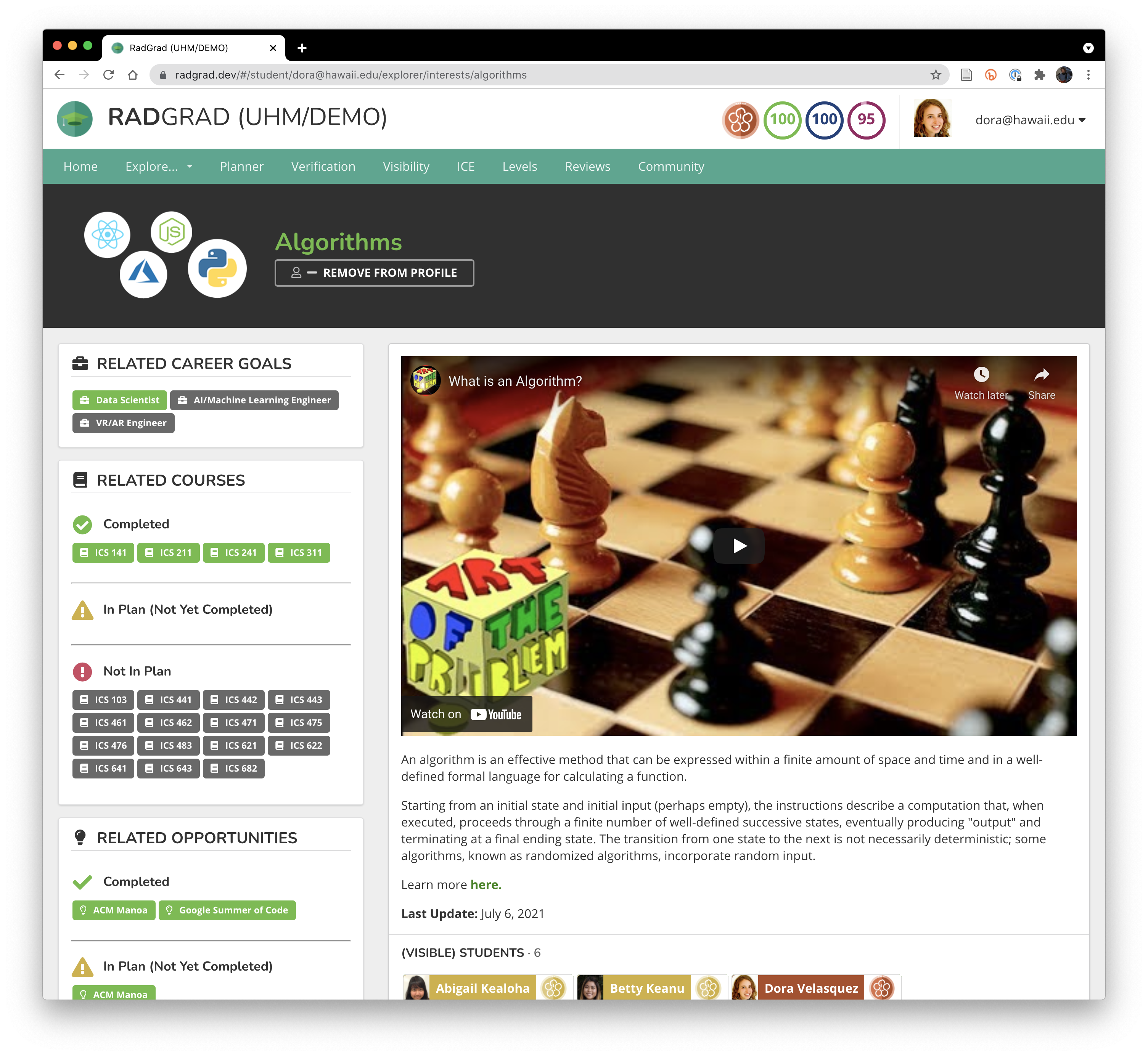
There is quite a bit of information on this page:
- A short text defining what an algorithm is.
- A short YouTube video describing algorithms.
- Career Goals, Courses, and Opportunities related to algorithms. Each of those tiles are clickable and will take you to a page describing them. If the tile is colored green, then that Career Goal, Course, or Opportunity is in this student's profile. Otherwise it is colored grey to indicate it is not.
- (Visible) Students. To maintain FERPA-compliance, students must opt-in to sharing information about their Interests within the system. In this case, a number of students (including all the Doras) have opted-in.
- (Related) Faculty. Faculty that have listed algorithms as a specialty area are indicated here.
Exploring Career Goals
While Interests are the "building blocks" of the discipline, "Career Goals" represent professional directions. The Explorer for Career Goals in Computer Science looks like this:
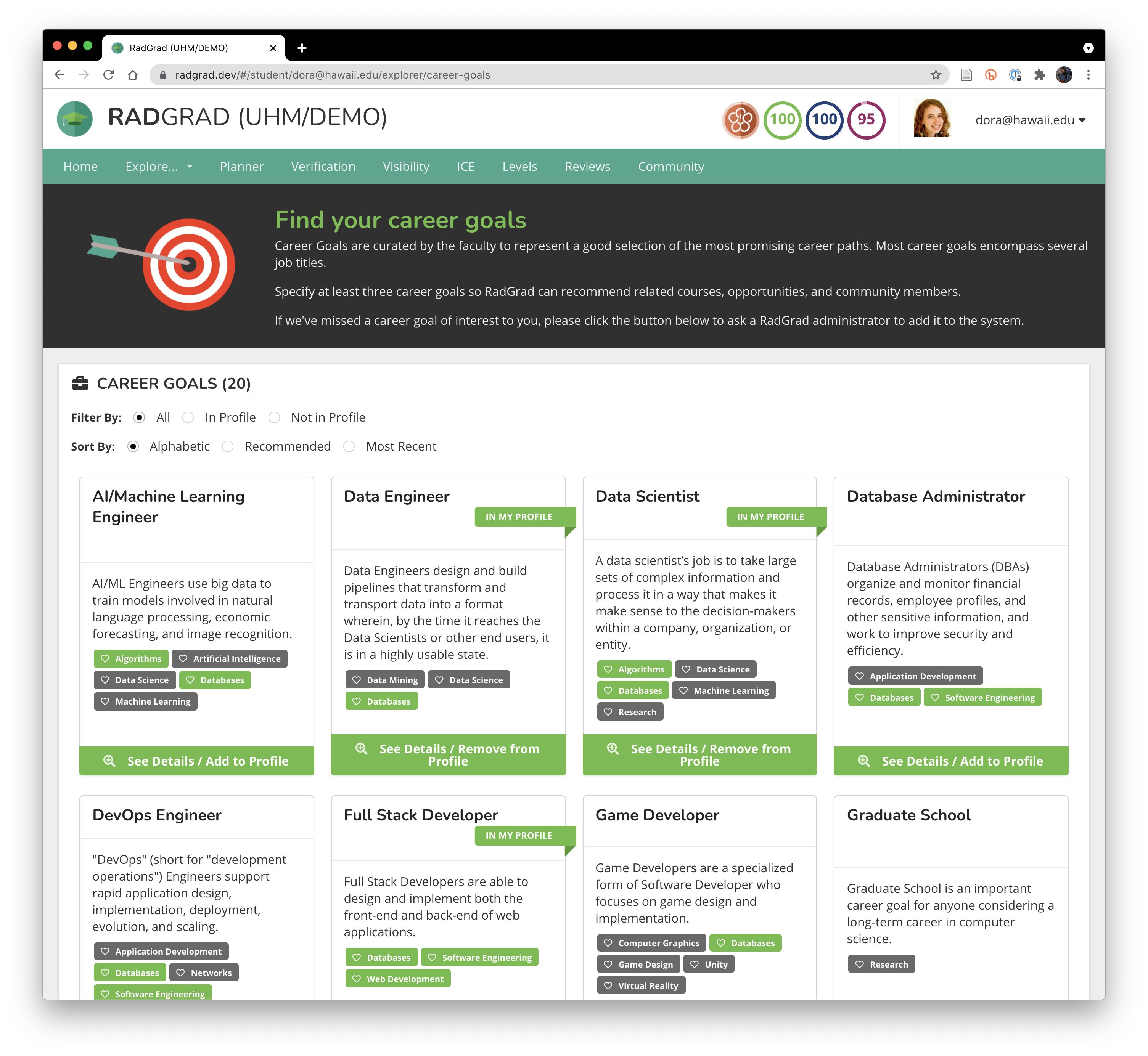
If we choose Game Developer, we see a "Details" page like this:
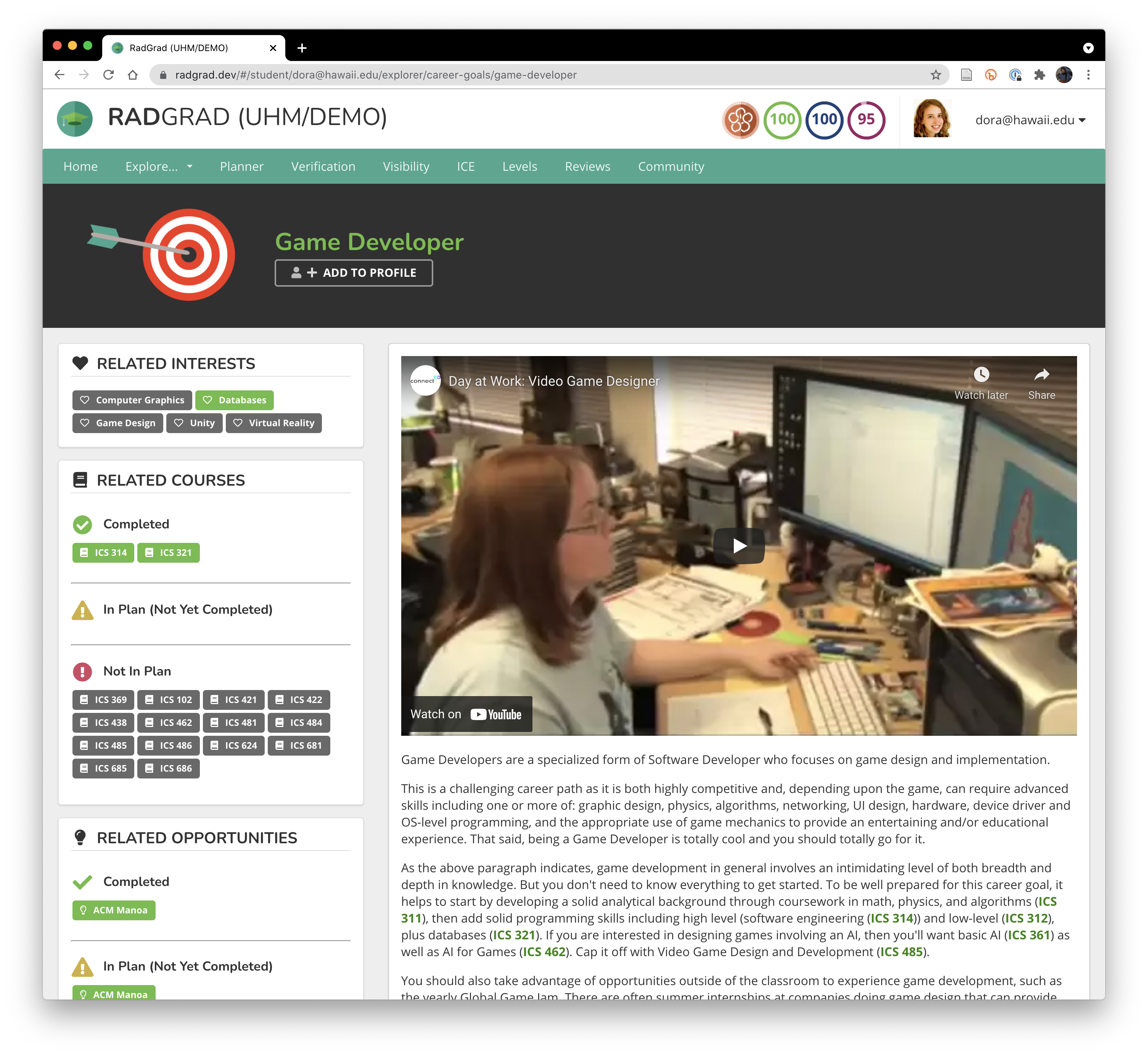
As you can see, students can quickly get a sense for the topic areas (Interests) associated with this Career Goal, which ones match their current Interests, and related Courses and Opportunities.
Exploring Courses
The Course Explorer provides information on the courses directly related to the discipline at this institution:
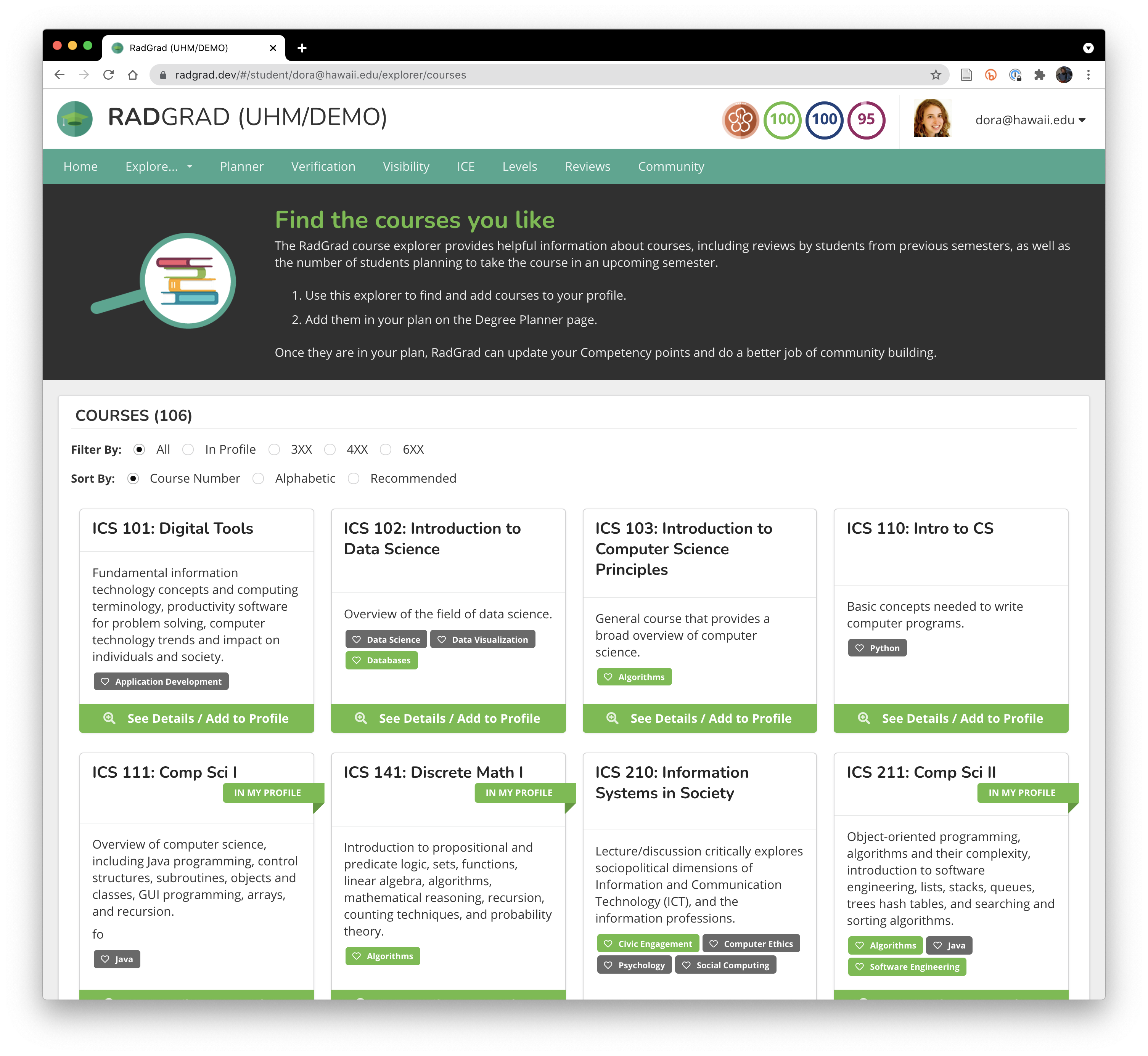
The Details page is similar to the other entities, although the ICS 111 page illustrates the fact that students are encouraged to provide non-anonymous reviews of courses:
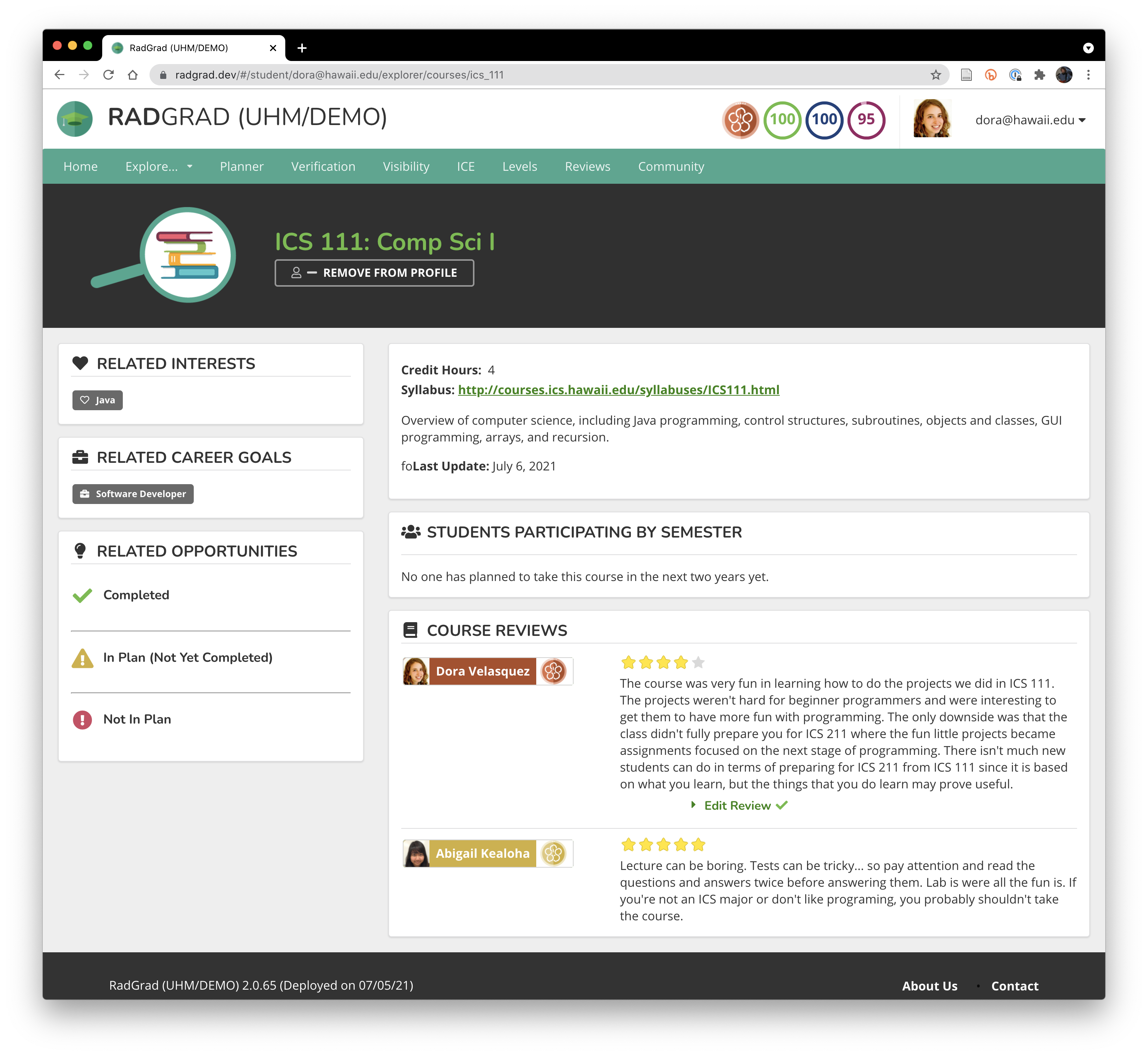
Reviews are moderated to ensure that the contents do not contain inappropriate commentary.
Exploring Opportunities
Finally, the Opportunity Explorer provides information on extracurricular activities related to the discipline, including clubs, community programs, hackathons, meetups, and so forth.
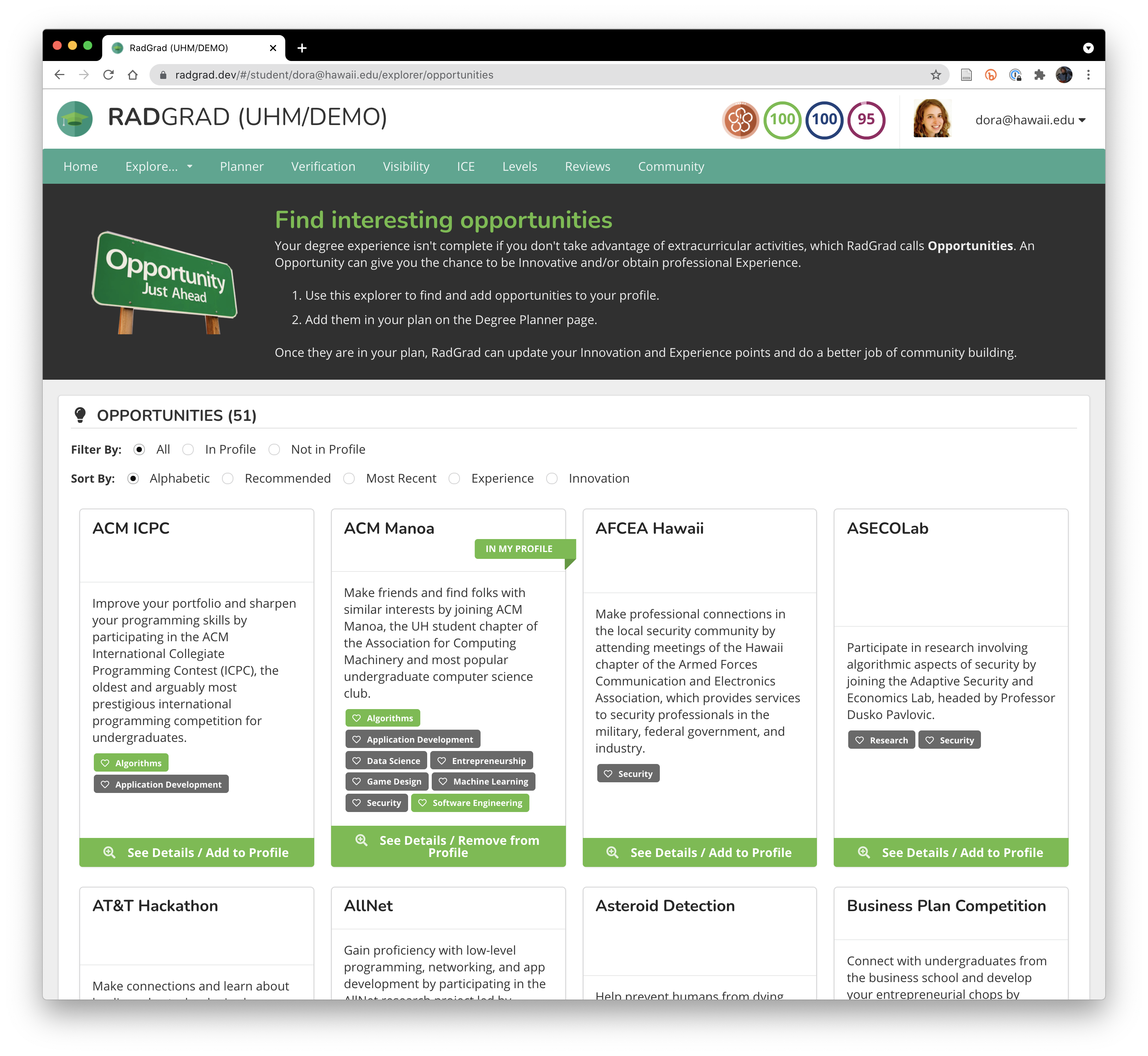
Here is the details page for a student club called "ACM Manoa":
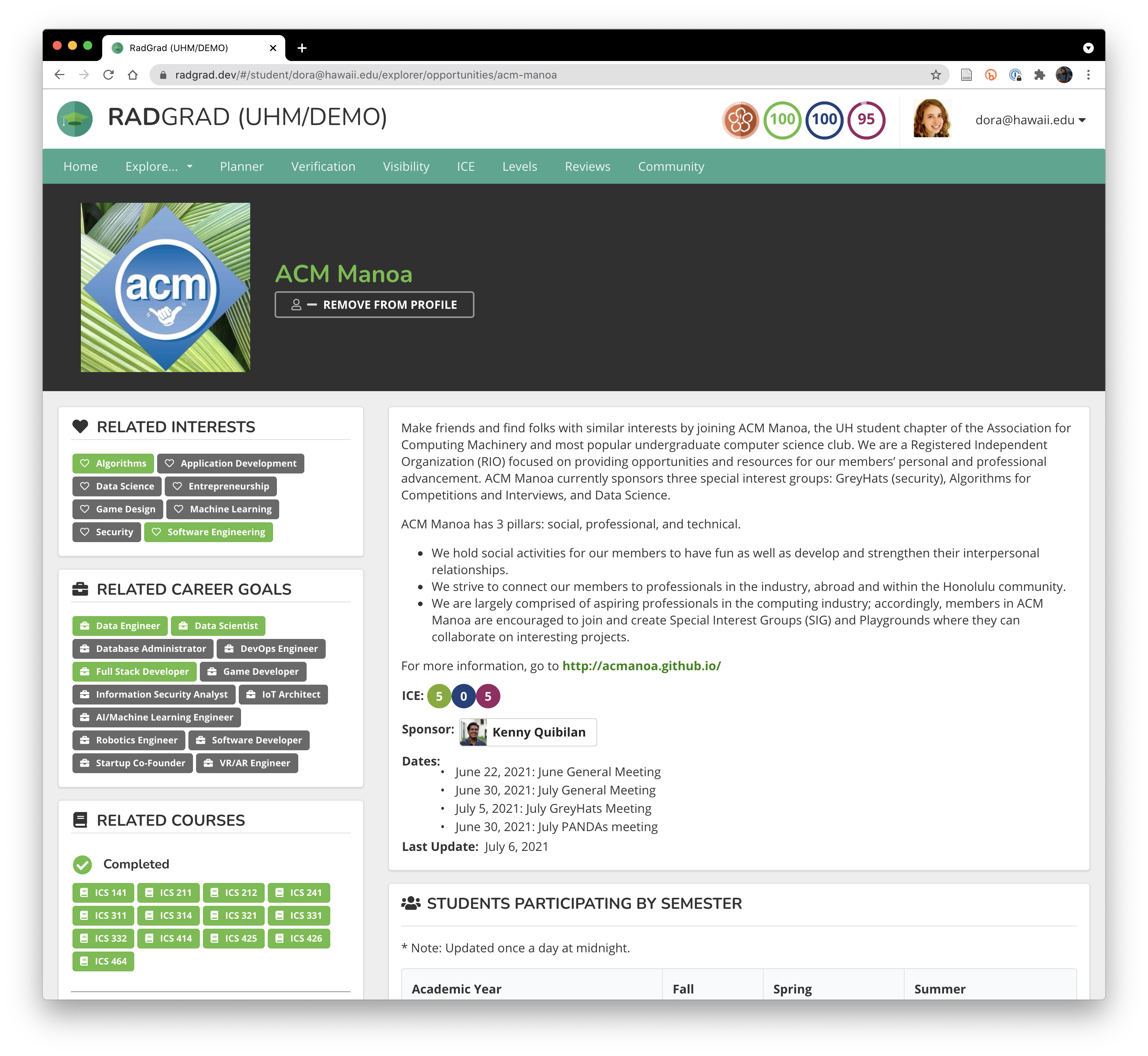
You can see that in addition to the related Interests, Career Goals, and Courses, this screenshot also illustrates that RadGrad can indicate how many students plan to participate in this Opportunity in future semesters.
It also indicates the "ICE" points associated with this Opportunity, which we will discuss in a few pages from now.
Demo Dive
These four Explorers, along with all of the associated Details pages, together provide over two hundred pages of information about the discipline of computer science and local, experiential opportunities related to it.
We don't expect you to read every page, but to better understand this aspect of RadGrad's design, please spend a few minutes "exploring" with a critical mindset:
- Can you discover something new and interesting about computer science and/or local opportunities that you didn't know before?
- Are there missing Interests, Career Goals, or Opportunities?
- Are there ways to improve the content associated with one or more Details pages?
Also, you'll probably notice that there is a fifth Explorer, "Internships". This page is under development and we hope to have a functional version by Fall, 2021.
(Problems with this page? Email radgrad@hawaii.edu to let us know.)